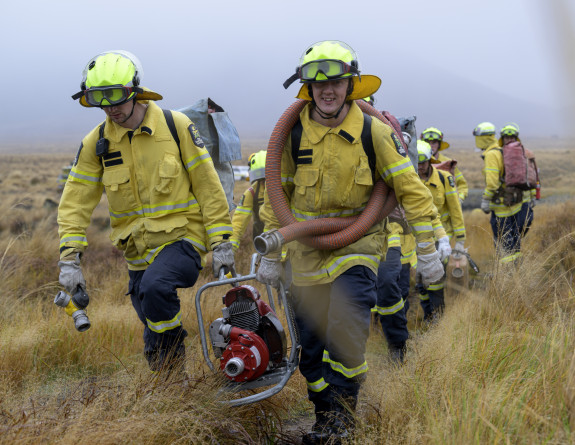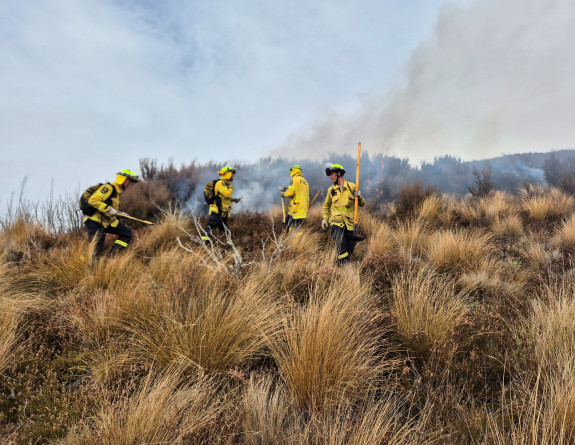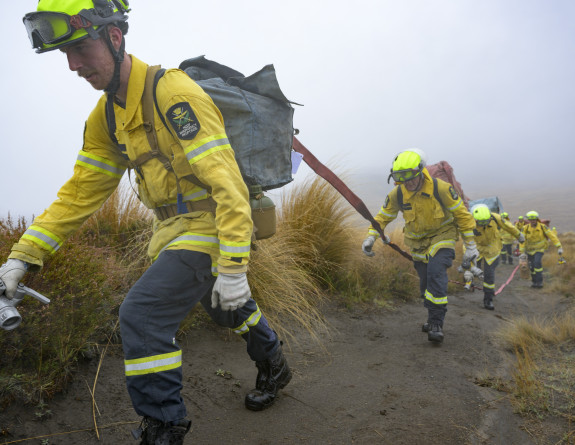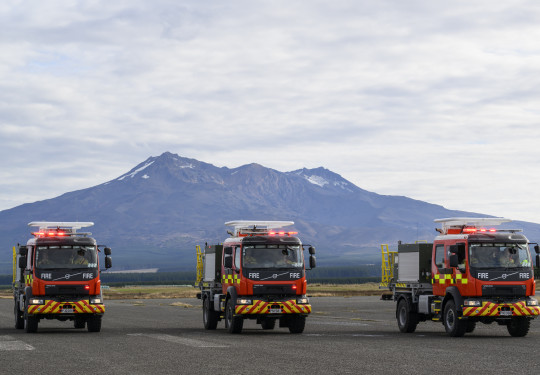Vital preparation for our Army Emergency Responders
Exercise Falcon, recently completed in Waiouru by our Emergency Responders from 3rd Field and Emergency Response Squadron, practised rural firefighting tactics and techniques that would simulate field fires both domestically, and on operations overseas.
07 May, 2025
Our New Zealand Army Emergency Responders are no strangers to large-scale firefighting, gaining vital experience at national and international wildfire emergencies for more than a decade.
This has seen Emergency Responders fighting fires in the Victoria Bushfires in the early 2000s, Tasmania in 2017, Port Hills fire in 2017, California and Canada in 2018, the Pigeon Valley fire in Nelson in 2019, during the Australian Bushfire Emergency in late 2019/early 2020, and returning again to assist Fire and Emergency New Zealand at the Port Hills in early 2024.
Responders also conduct firefighting on their own turf, in Waiouru and Tekapo Military Training Areas.
Changes in climate and weather have seen an increase in vegetation fires across the world, with New Zealand being no exception, and while these types of large-scale fires do not happen often, our sold



Emergency Responders from 3rd Field and Emergency Response Squadron during Exercise Falcon
Emergency Response Waiouru Deputy Fire Master Staff Sergeant Joshua Nahi said Exercise Falcon gave soldiers exposure to scenarios not likely encountered on regular shifts.
“Rural firefighting is inherently dangerous task, therefore it is vitally important that our Emergency Responders maintain their skill sets.
“This exercise provided our team with direct attack on live fires utilising ground crews, rural fire appliances and the integration of air support.
“They also practised indirect attack techniques which included creating fire breaks to contain large scale fires.”
As well as this the crews were able to practise a ‘mop up’ which meant they swept through the fire affected areas, assisted by unmanned aerial systems and handheld thermal imaging cameras to identify hot spots for further extinguishment.
These types of scenarios help practice our leaders in managing all types of scenarios giving command confidence in sending our firefighters overseas if required.
Staff Sergeant Nahi said training like this was important because practising fighting fires can be inconsistent.
“Some shifts see a lot of action, whilst others get fewer call outs. Training in this capacity ensures all our soldiers have experience throughout the trade and that we have depth in our people at all ranks with significant firefighting experience,” he said.
Exercise Falcon also provided an opportunity to stand up an incident management team which would be used to manage large scale fires.
